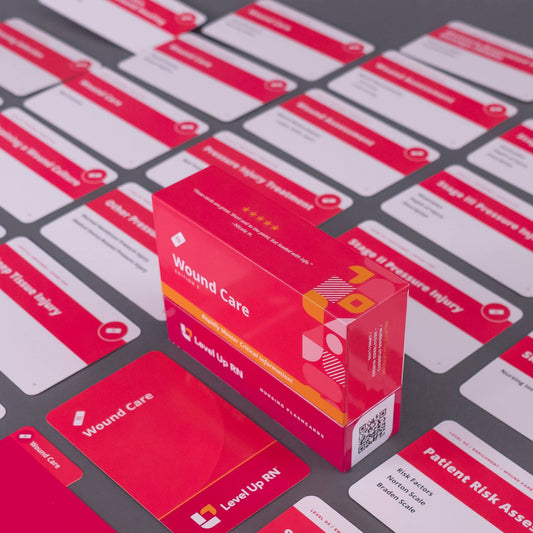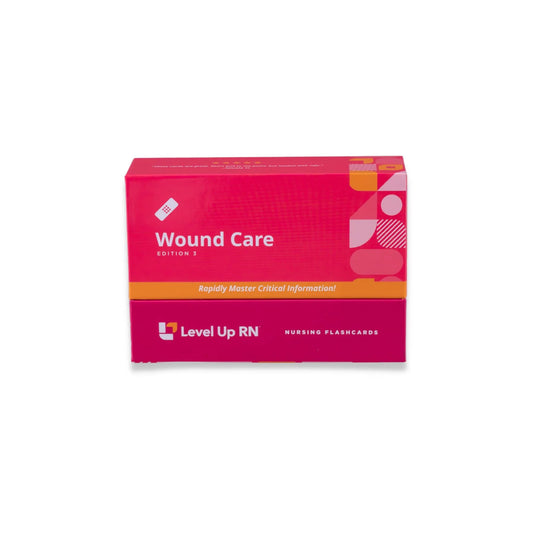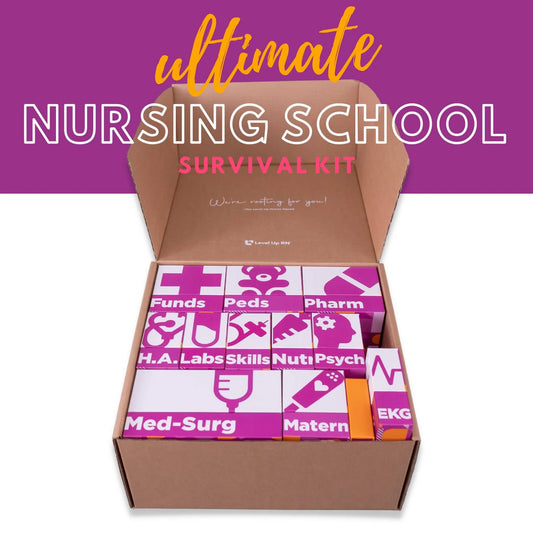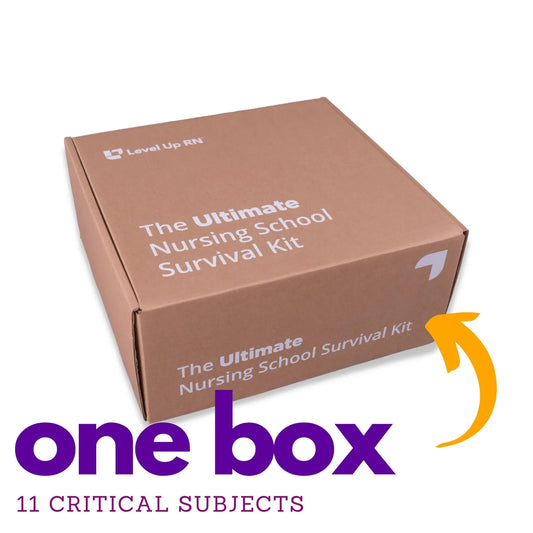Hi, I'm Cathy. And one of the requests I got for a video was for me to share my experience as a new grad nurse. So my new grad program may be very different than what your new grad program will be, but it may be similar. So I'll share what I learned and how everything went for me.
So when I was in nursing school, I worked as a transporter part time so that I could get my foot in the door at my hospital here, which is Scripps Encinitas Hospital. And that worked well for me. So I proved myself as a transporter that I was reliable and friendly and had good patient care. So I was selected as part of the new grad program. The new grad program within the Scripps Hospital system is 40 weeks long. So typically, you spend 10 weeks on days, 20 weeks on night shift, and then another 10 weeks on days. And then throughout that 40-week program, you also take classes which are not totally unlike some of the clinical classes that you took in nursing school. So some of the classes we took included kidney disease and diabetes and wound care and caring for stroke patients. We had a Sim Lab for some of the classes. We had little quizzes or tests on how to take blood sugar and stuff like that. So those classes are really to prepare us for caring for patients with different conditions. So you take those kind of periodically throughout the 40 weeks while you're on the floor learning your job.
So for the first 10 weeks of my program, I had a preceptor the whole time. So on my first day as a new nurse, I brought in a card and some cookies for my preceptor. Her name was Jolly. Very sweet, very amazing nurse. So I was very fortunate. But I just wrote her a little note to thank her for her time and for her coaching. And just let her know I really appreciate her being my preceptor. So I would definitely advise you to do that as you're starting your journey as a new grad.
And so for the first day, she really just showed me around the floor. And I just shadowed her. So she cared for patients, and I just kind of watched her in her routine. Watched how she pulled meds. Watched how she did her assessment and how she managed her time. How she did her charting. I really just tried to take all of that in. Then my second day on the floor, I got one patient. So with that one patient, I would attempt to do all the things I needed to do as far as charting and meds and assessments, etc. And she would be there to kind of help coach me and show me where to do different things and how to chart, etc.
And then I believe the next day, I had two patients. And I probably had two patients for a number of days before that increased to three. And that went on for at least a week or so before I got on to four patients. So on my floor, four is really where we usually max out. We're a Med-Surg/Tele floor and the patients on the floor I've worked on as a new grad were pretty sick. A lot of comorbidities. So really, it was 4:1 ratio. So it probably took at least four weeks or so before I had four patients. So you go from 0 to 1 to 2 to 3 to 4. And the whole time, you're just asking lots of questions. Just trying to get a rhythm down. It can be pretty overwhelming. If it's a busy floor and your patients are really sick, which is often the case these days in healthcare, it's a lot to take in. So you really have to just give yourself a lot of grace and a lot of mercy and just be patient with yourself. It can feel sometimes like you're drowning, and you're just trying to take it in. The day will come where you feel more comfortable and confident. It will come. But in the meantime, you just have to be really patient with yourself.
Anyway, so she was my preceptor. Jolly was my preceptor for those 10 weeks. And then, sadly, I moved to nights. Some people are into night shift. That was not me. For the first week of night shift, I also got a preceptor. Things work a little different on night shift, and my preceptor helped to kind of onboard me for those type of shifts. There are things you do-- initiating TPN usually happens at night. You're giving a lot of blood sometimes at night. There's things that happen more so on night than day. And then there's things that obviously happen on days that don't happen on nights as much.
So I had a preceptor for a week, and then you're on your own, which is scary. It's super scary, but it's a really good thing because then you can really find your own rhythm and your way of doing things and how you like to organize yourself and your schedule and just get into your own comfort zone. You definitely need to make friends with your mentor nurse and possibly your charge nurse. So I had an amazing mentor nurse on night shift. Her name is Sarah Miles. She's moved out to the east coast, but she was so much help to me. So when I struggled with IVs, which was super frustrating to me because I was really good at them in nursing school-- and then I get on the floor, night shift, and I'm just missing them all, and I really hated that. But she gave me some good pointers and tips and really helped me with that. So when I did get my IV in, I would be doing a big happy dance and go celebrate with Sarah. She was always very sweet and excited for me when I got my IVs or got something done that I was struggling with or whatever. She was just really supportive.
And she also just gave me some good real-world tips. For example, all your patients get meds at 9 p.m. You've got four patients. You can't give them all exactly at 9 p.m. It just doesn't work. And if you've got a patient with 20 meds, which happens, you'd better get started early. So she's like, "I start pulling meds at 8 p.m., and I start pulling them. " Because a lot of meds, they're not as time-sensitive. Antibiotics are time-sensitive. You have to give them within 30 minutes of the time, but a lot of other meds are not, and you can give them early. So you take a look at your patients' med schedule. Start early. Try to get a head start on those things. That was really helpful.
So if you've got a cool mentor nurse who can give you some real-world advice, that's awesome. If not, seek out some other nurses who can give you some tips and some real-word advice. Because in a perfect world, you do everything exactly on time, and you do everything exactly right. But in the real world, you end up having to cut corners sometimes. Maybe you're charting; you're not able to chart as much as you would like in some ways. You have to make decisions. And it's not all going to be perfect and done as exactly right.
So, of course, you want to be safe with your patients. You definitely want to be safe with your med passes, etc., but when it comes to exactly when you give meds or some of your charting there may be some tips and tricks that you can get to help save time and just have a more practical approach. So during those 20 weeks on nights, I was sleep-deprived, and I was sure that I was suffering from every disease that my patients had. I had a chronic cough, and, I swear, I probably thought I had lung cancer and TB and everything else. And all the CNAs even made fun of me. They teased me. That's fine. I totally deserved it. And when I went back on day shift for my last 10 weeks, my cough actually cleared up. I was like, "Yeah. It turns out I was just allergic to night shift."
But anyway, the CNAs were great. Definitely learn from them too, right? There are new grad nurses who worked as CNAs before they were a new grad nurse, and they're really good at changing sheets and cleaning poop and diapers without getting poop all over the place. I did not work as a CNA before I became a nurse. I was a transporter. So I was really good at sliding patients over, repositioning patients. But cleaning up c. diff diapers without getting poop all over the place, I was not really good at that when I first started as a new grad. So I really asked my CNAs and LVNs for help on that like, "Hey, show me your way." They would do it and everything would be perfect. And I'm just blown away. So I'm like, "Show me." And when you ask for help from your CNA and ask them to show you their expertise, that goes a long way into creating respect between the two of you. And they respect that you're not perfect and that you need help and you're a new grad. And then you really become more of a team. You have that respect. And they have their expertise and things they're good at, and you have your expertise and things you're going to be good at. And so, definitely, give them that respect.
So on night shift, I got good at my routine, how I like to do things, so then when you move back to day shift and the schedule picks up again-- on night shift, it's a little more chill so you have that time to figure things out. And then on day shift, you're back to fighting fires and talking to doctors and working around PT/OT, wound care, everybody. At that point, at least you have a foundation of how you like to do things to work from.
So my other advice for new grads is really to kind of fake it till you make it. And I don't mean to fake like doing a procedure or something you don't know how to do or you're not qualified to do. Don't do that. If you're not sure about a med or a procedure, definitely get help. But what I mean is to just fake confidence for your patient. Because if you go in there freaking out like you're putting in a Foley for the first time and you're nervous, you let the nurse know you're a new grad, and you've never done this, and you're super nervous, well guess what? She's going to be freaking out. She doesn't want you probing down there when you've not done this before. So your anxiety will feed her anxiety, and everybody's going to be unhappy. So you really have to go in to the room like you're confident and like, "I'm here to do this," and explain what you're going to do and ask them if they have any questions and set up and just act very confident.
I got away with that a little more just because I'm a little older. I went to school going-- nursing was my second career. So when I graduated, I'm a little older, so patients mistakenly think that I've been a nurse for a long time. When, as new grad, I really hadn't. But being older kind of gave me that, a little bit of an edge versus somebody who's really young, they'll often get the question from patients like, "How long have you been a nurse," right? Well, you don't want to lie. But then if you tell them, "Oh, yeah, I've been a nurse for two months," or whatever, then they sometimes start to freak out. So if you can avoid that question or answering that question, that's great because again, you want to instill a sense of confidence in the patients, so they'll relax ,so that you can relax, and get whatever it is you need to get done, done. So go in there confident even though inside, you might be flipping out a little bit. You got to just show the patient your outside is very calm.
So that's it. Ask questions. Act confident. Hang in there with night shift. And then when you're all done with your new grad period and you're feeling a little more confident and capable, you could start thinking about where you belong as a nurse. There's so many paths that you can take as a nurse. For me, I'm kind of a perfectionist, and I like detail, so wound nursing is perfect for me. Maybe you really like to take care of-- you want to be an ICU nurse. You like the idea of taking care of two patients who have a lot going on. You like hanging five billion bags and Y connecting and everything all these IVs, or maybe you like a faster pace like the emergency department with some variety, or maybe you want to go to the cath lab eventually. You'll have some time to think about that. And what you think you might want to be may not be what you end up wanting to be. So in nursing school, I thought I wanted to be an OR nurse. And I did a rotation in my clinicals, and it was super boring to me. They weren't even touching the patient. They were charting. And I was like, "Wow. This is super different than I thought it would be." So try to get as many experiences as you can in nursing school. And then once you get out and start working, likely on a Med-Surg floor, you'll have a better feel for which you like and don't like and what direction you want to go.
So I wish you the best with your new grad experience. And if there're any other questions or things I can answer for you in a future video, I'm happy to do that. Just leave your questions, or comments, at the end of the video, and I'll make more videos soon. Thanks so much for watching!




